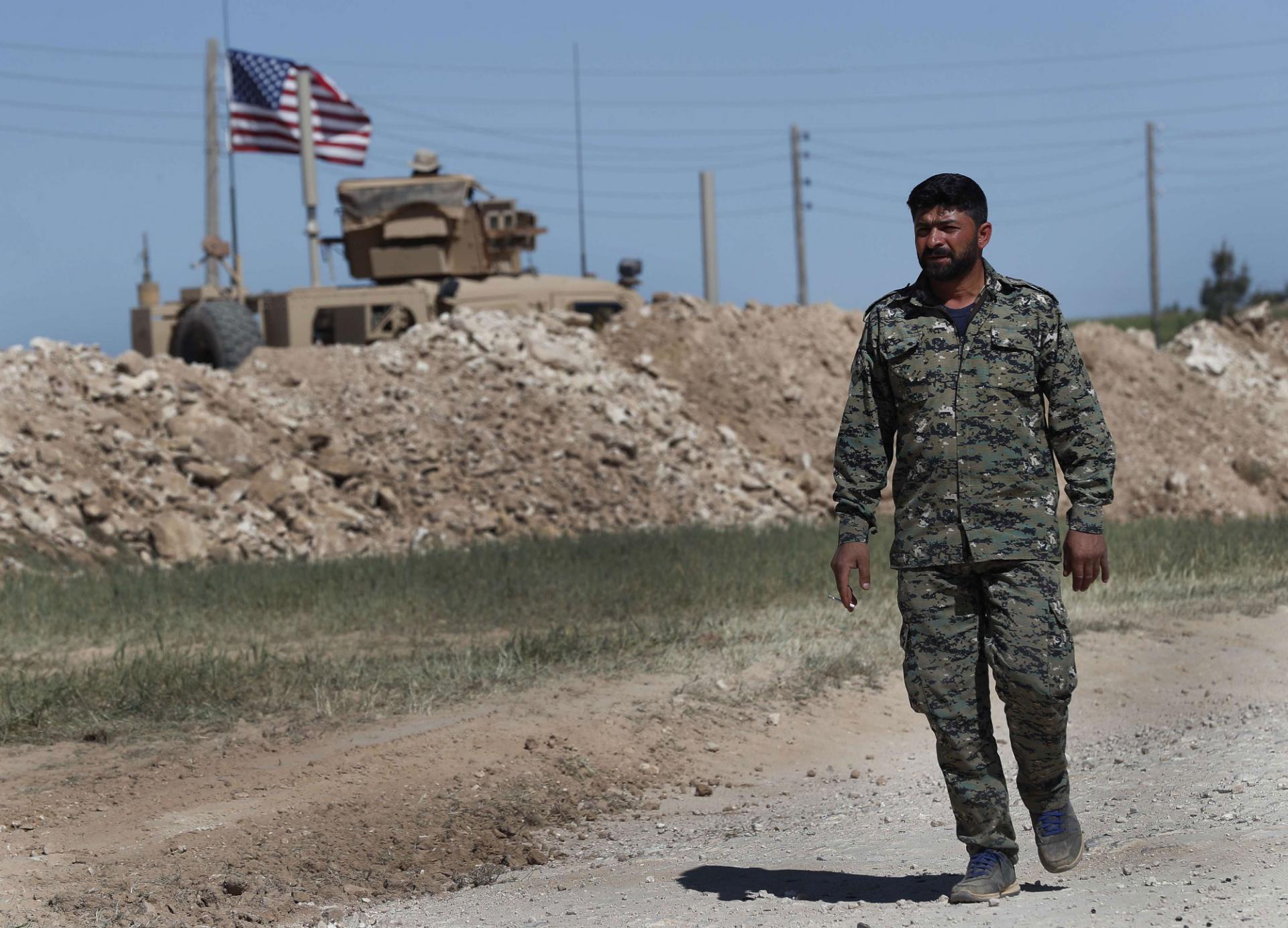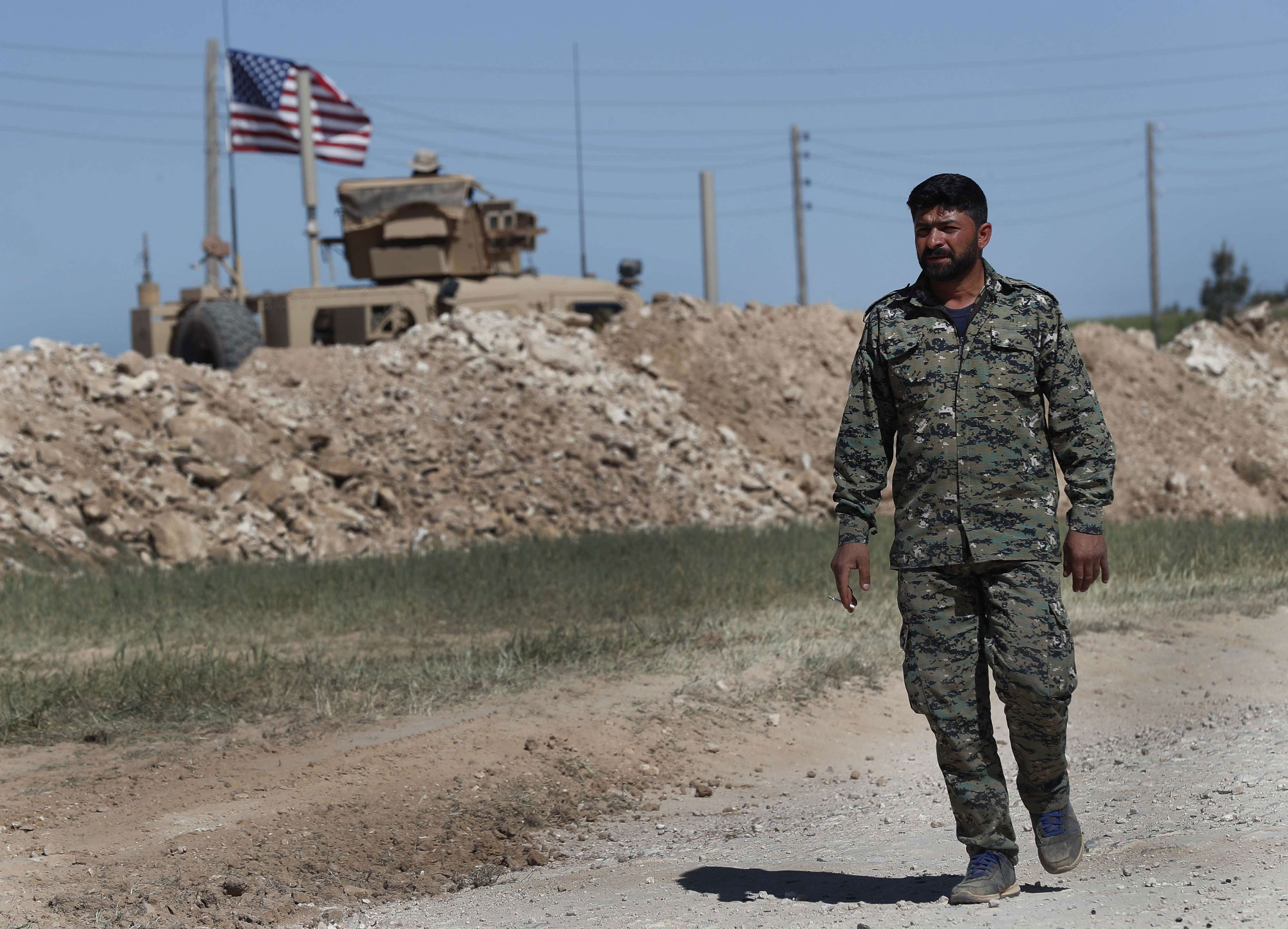Trump cannot outsource Syria’s reconstruction to Saudi Arabia
In the confusing mishmash of US President Donald Trump’s Syria policy — one day he says he wants to withdraw all US troops from Syria and soon after he indicates he wants to attack Syrian President Bashar Assad over chemical weapons use — one thing seems clear: He wants other countries, such as Saudi Arabia, to pay for and administer Syrian reconstruction and redevelopment.
Trump does not take a strategic view of US foreign policy. For him, foreign policy is transactional. Unless he sees some direct economic benefit to the United States, he says Washington should stay clear of conflicts unless they have a direct bearing on US security.
This type of thinking guides his foreign policy. Trump says the United States had to be involved in Syria to defeat the Islamic State (ISIS) because it represented a threat to the US homeland. However, now that ISIS is nearly defeated, it is the responsibility of other countries to get involved.
Trump underscored this theme in several recent statements. Noting he wants “to get out” of Syria and bring troops home, he emphasised that he wants “to start rebuilding” the United States. This conforms to his “America First” agenda.
He even took great liberty with cost figures on US wars in Afghanistan and the Middle East, claiming that $7 trillion has been spent over the past 17 years — the actual figure is probably much less than that — underscoring that “we get nothing out of it.” He also repeated his controversial remarks that the United States should have taken “the oil” in Iraq and Syria that he claimed fell into ISIS’s hands.
Trump reportedly asked Saudi King Salman bin Abdulaziz Al Saud to commit to $4 billion towards the stabilisation and reconstruction of Syria, a request that coincided with his decision to hold up $200 million of US funds for the same purpose.
Trump stated that the United States did a “hell of a lot more things to help” other countries than what the country received in return and these activities were very costly. This explains, in large part, his comment on Syria: “Let other people take care of it now.”
The upshot of this was that Trump apparently thought he had a firm commitment from the Saudis to step into the breach and pay for Syria’s reconstruction and redevelopment. However, pressed for a reaction, the Saudi Embassy in Washington had no comment.
The Saudis are clearly nervous about a US troop pullout from Syria because it would set back efforts to prevent a so-called land corridor from being created from Iran to Lebanon and would allow Tehran even more free rein in Syria.
The task of reconstruction and redevelopment in Syria is a huge undertaking. For example, about 80% of the city of Raqqa, the former capital of ISIS’s self-declared caliphate, was destroyed and many mines and booby-traps remain in the city. Many other cities in Syria are heavily damaged.
Hence, this reconstruction and stabilisation effort is not just a matter of money; it involves having highly trained people on the ground to make Raqqa and other cities safe and liveable again, administer aid to people in an equitable way and help to set up administrative mechanisms so people can reclaim their former homes and farms and begin to rebuild their lives.
The Saudis do not have the expertise and are right in being hesitant to take over these tasks.
Without a US military presence on the ground, eastern Syria can easily fall back into chaos. There are ISIS pockets in the area, relations between ethnic groups, such as Kurds and Arabs, are tense and Turkey might still intervene there as it did in Afrin further to the west.
It is highly doubtful that the Saudis would want to put their own troops and administrators into this area given the potential for clashes. It is obvious they are having enough trouble in Yemen and do not want another major problem on their hands.
So it is one thing for Trump to say “let other countries do it” — such comments sit well with his political base, most of whom believe the United States should not be involved in foreign ventures in any case. However, it is quite another to pass the baton to another country that may have deep pockets but not necessarily the military and administrative apparatus to do the job.
Thus, Trump’s comments cannot be taken seriously. He seems to want to wash his hands of Syria, not understanding that, without US leadership, the situation there could become even worse.
He may, indeed, be moved by the sight of children suffering from chemical weapons attacks and may strike Assad’s military again in response as he did in April 2017 but such actions are tactical, not strategic, and developing a long-term strategy for Syria is not in his political game plan.
This article was originally published in The Arab Weekly.







